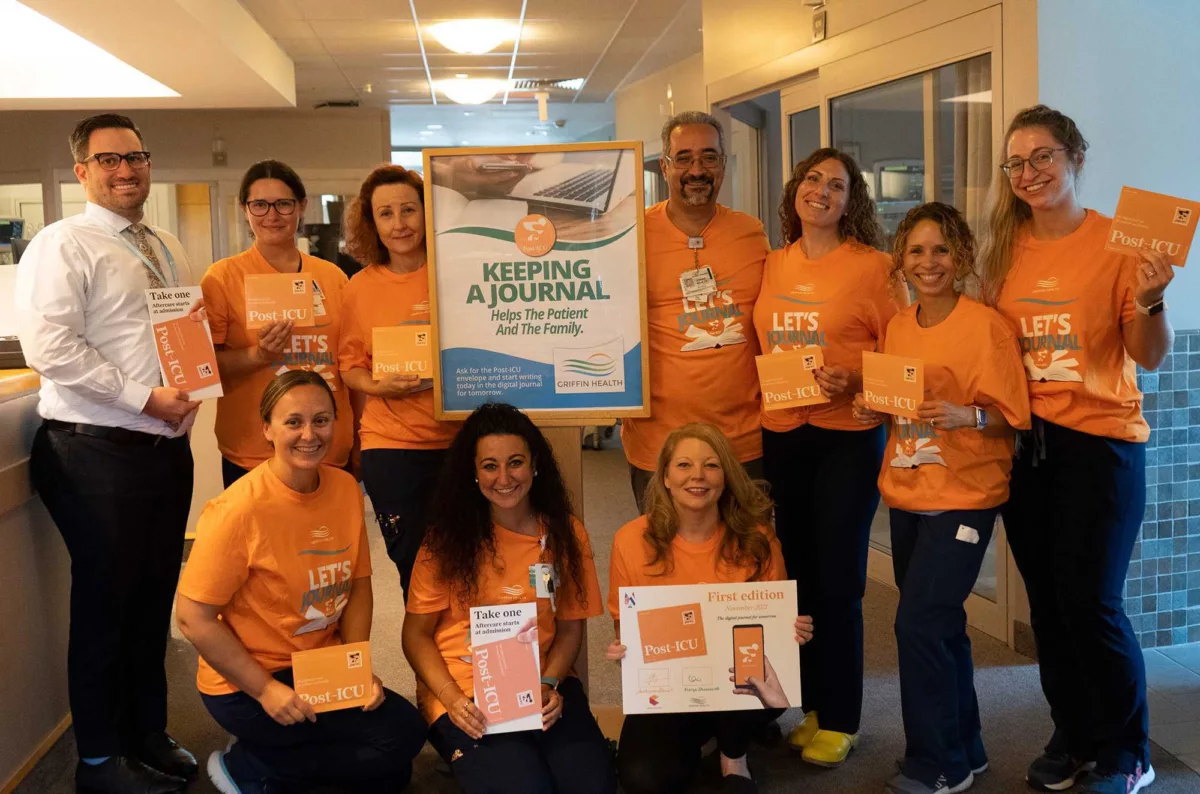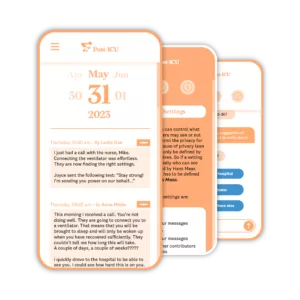



The post-ICU recovery journey is a collective effort of patients, their families, and the critical care staff. The Post-ICU diary helps create a shared narrative that contains the context, memories, and milestones that occurred during one’s ICU stay.
This narrative helps patients piece together what happened to them and around them in the ICU which has many benefits for their mental and psychological health.

Experience a dynamic digital ICU diary like never before.
From seamlessly adding multiple writers to a diary and effortlessly uploading photos, to extensive privacy options: the digital Post-ICU diary offers unparalleled functionality.
Hospitals in Europe
Average number of entries per journal

Post-ICU is trusted by +25 Hospitals in Europe



















Yes. Many studies have shown that keeping a diary will significantly decrease PICS-related symptoms. Unfortunately, that doesn’t mean keeping a diary will (completely) prevent PICS 100% of the time. PICS is a complex syndrome with many factors influencing the possible outcome.
Studies have found that at least 25-50% of ICU-patients will develop PICS, and up to 30% of their family members will develop PICS-F.
The general rule of thumb is: writing down something is always better than nothing. Try not to think too much about it. Simply writing about your own thoughts and feelings can be very helpful for you and others around you in the long run. And if someday you feel really stuck, you can find a number of writing suggestions within the Post-ICU diary to help you.
Yes. The legal representative of a patient has control over who can upload photos in Post-ICU: nobody, themselves, professional caregivers, and/or other contributors to the diary. It is encouraged to add photos to Post-ICU because photos can speak a thousand words and can be very beneficial in the recovery process. Having photos in the diary from multiple perspectives (nurses, family, friends) can help the patient reconstruct their ICU admission when they wake up.
Post-ICU can be used on any device that has an internet connection. This could be a smartphone, desktop computer, laptop, or tablet.
Post-ICU is completely free to use for patients and family members. The digital diary is provided as a service by the hospital.
When the patient is awake, they decide what they want to do with the diary that has been kept for them. Post-ICU offers an option for the patient to delete their diary and all its entries if they want to.
Explore our resources hub full of expert-level content and materials.
The latest on critical and person-centered care
delivered to your inbox - only once every 3 months.